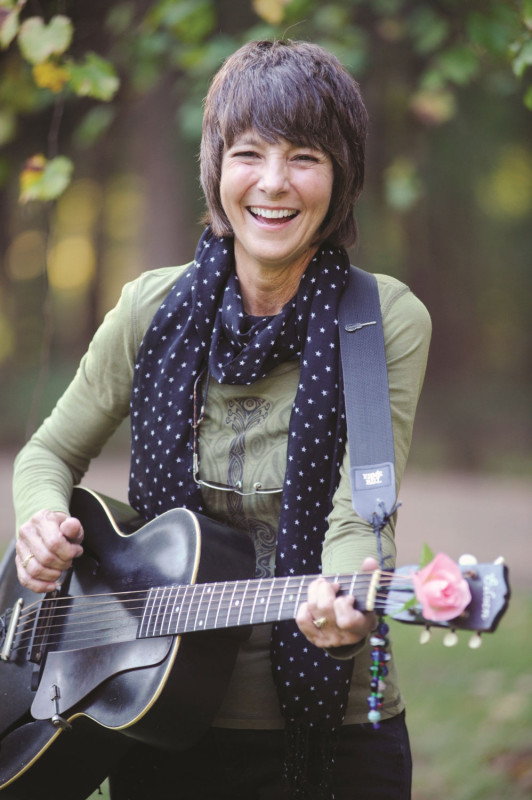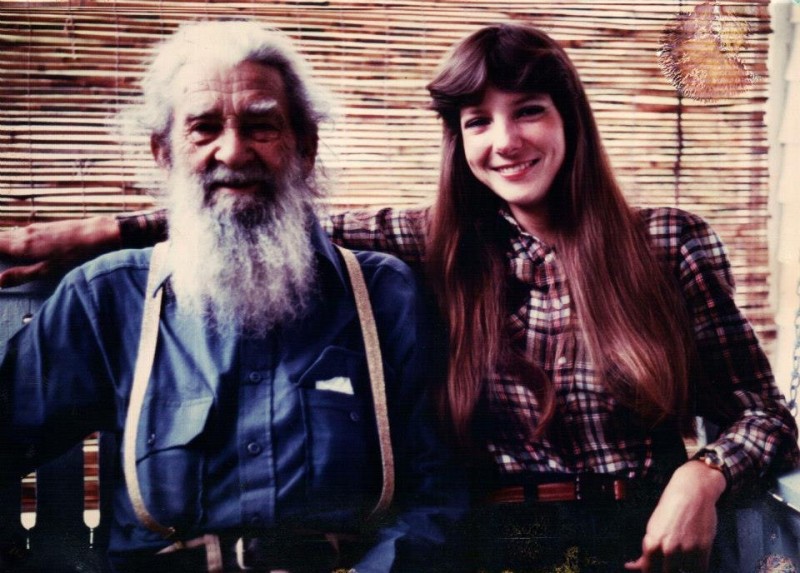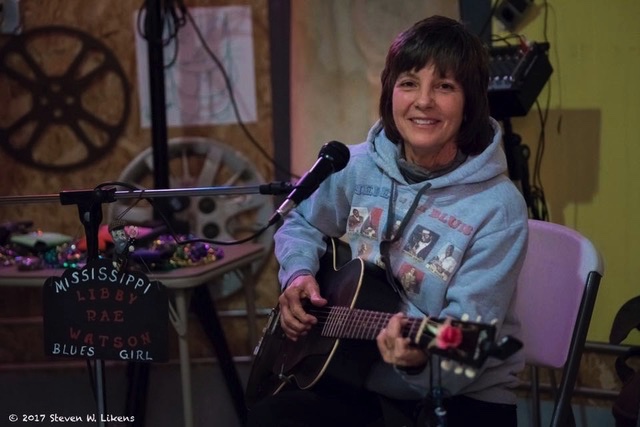 Suppose you were a fan of Impressionism, and then of course of the great painter Vincent Van Gogh, and you found out that one of his best paintings was virtually unknown, hidden in a far corner behind a pillar at the Vincent Van Gogh Museum in Amsterdam. There hangs a little painting of a tree. Not just any tree, but a tree as seen by Vincent Van Gogh! You can visualize it. Vibrant, rich, exciting, sensual in movement and color. Yet, even the people who love Van Gogh tend to not notice it and even walk past it, unaware of its presence. This painting is not found in the many Van Gogh books, no posters of it for sale in the museum, no big deal made about it in art history classes. Yet, once it catches your eye and you stop and look you realize its sheer beauty and power. It will move you in a deep way. When you connect with it becomes evident that everything that is good about Vincent’s work is revealed here, in one of his unknown, obscure pieces. When you stop and look, oh what a joy. It should be famous, acknowledged as one of his brilliant works.
Suppose you were a fan of Impressionism, and then of course of the great painter Vincent Van Gogh, and you found out that one of his best paintings was virtually unknown, hidden in a far corner behind a pillar at the Vincent Van Gogh Museum in Amsterdam. There hangs a little painting of a tree. Not just any tree, but a tree as seen by Vincent Van Gogh! You can visualize it. Vibrant, rich, exciting, sensual in movement and color. Yet, even the people who love Van Gogh tend to not notice it and even walk past it, unaware of its presence. This painting is not found in the many Van Gogh books, no posters of it for sale in the museum, no big deal made about it in art history classes. Yet, once it catches your eye and you stop and look you realize its sheer beauty and power. It will move you in a deep way. When you connect with it becomes evident that everything that is good about Vincent’s work is revealed here, in one of his unknown, obscure pieces. When you stop and look, oh what a joy. It should be famous, acknowledged as one of his brilliant works.
That drawn parallel has a reason, because there is a marvelous blues woman in Pascagoula, Mississippi, down on the Gulf Coast, who embodies a similarly under-appreciated place in the acoustic blues. She is mostly known around the New Orleans to Memphis corridor, a real native Mississippian. There is something really special here, a love – a passion for the music, a finesse. Songster Libby Rae Watson has a certain musical innocence, yet a raw sultriness and an inner beauty that comes through in the music and a reverence for those who inspired her. She is also a fine songwriter.
The adjectives and accolades could flow easily. Libby Rae Watson is a remarkable singer and guitarist, a superb fingerpicker and slide player. Guitar fans will be impressed by her skill, and by her Gibson Black Special Number 2 archtop 1935, her main standard guitar. She also plays an old National for slide and a brand new National Piccolo guitar. That in itself is wonderful, but we know there are many excellent singers and guitarists, but not enough women. When you hear her sing with a strong, assertive and confident voice you look up. There is something here from a deeper well. This is a very special singer/guitarist and songster in the class of Eleanor Ellis, Mary Flower, Rory Block and Del Rey. She has it all, beautiful stuff, and why is she not an international star? Maybe because she has not issued a well-produced solo album, even though she has the repertoire and the chops to stun the blues world. Maybe because there is not a single good YouTube film of her performing solo that is not amateurishly done or of poor sound quality. Fact is, she is terrible at self-promotion and she openly admits it. Still, her fabulous talent is evidenced in her 2011 released CD Sweet ‘N’ Salty. Unfortunately, the record went underwater during the storm surge of Hurricane Katrina and the salt water affected the tape, adding an aged sound quality that some may like, giving it the illusion of a poor 1930s recording. This sound distortion, however, diminishes rather than adds to facilitating Libby Rae Watson’s naturally beautiful voice and virtuosity, but even then, her sultry, sensual singing rises above it. Her covers of Ida Cox, Memphis Minnie and Sam Chatmon will astonish and make you want for more and clarify that she is one of the finest of our contemporary blues women.

She often sings and records with her mates, Rambling Steve Gardner, Wes Lee and Bill Steber, who call themselves the Jericho Road Show. Their album Times Ain’t Like They Used To Be with Washboard Chaz Leary gives us a small taste of what Libby Rae Watson can muster. If after one listen to the famous Is You Is Or Is You Ain’t My Baby, Bo Carter’s Whiskey Blues and You Don’t Know My Mind by Joe Callicott you are not totally in love with Libby Rae Watson, well, then …

In her early days, she ventured out to meet the people who inspired her. She went to see Big Joe Williams, and even wrote a song about it, appropriately called Big Joe, found on an EP I Done Told Ya, with Wes Lee. Her hero and mentor was none other than the great Sam Chatmon, who was her teacher and inspiration. Libby Rae Watson is all that! thecountryblues.com caught up with the bard via telephone on March 25, 2018:
“I went to the University of Southern Mississippi in Hattiesburg, and did that out of school and went in as an art major, and that wasn’t working out for me. I came home for a couple of years. My dad was a dentist here in town, so I worked in his office for a couple of years and went back to college at Mississippi State in Starkville, Mississippi. And there I prepared myself to go to dental hygiene school, which was the University of Mississippi Medical Center in Jackson, Mississippi. I went through and became a dental hygienist. I did that for 30 years. So that was my money-making part that kept me going…I first started playing when I was always a kid – I’m the youngest of six kids in my family – none of them had a lick of music in them, but I did somehow. When I was about 14 or 15 when I walked into a local music store and I saw this interesting book on country blues and it had this picture of Son House on the front – I didn’t know who that was. I started looking through at all the names of the songs, and it had all this – John Hurt. I just became infatuated with it. It was just something completely foreign to me but yet I felt like I needed to know it. So that kind of got me started on that path of wanting to understand that those people came from my state, a lot of those guys I was looking at. I made the correlation that maybe it’s not so bad to be from Mississippi. We’ve got cool stuff here. I got interested in that style of music from that songbook. As simple as that…My mother died when I was very young, so I was raised really by my dad who was a working man. So, he wasn’t around. We were raised by this black woman named Isabelle. Isabelle liked what I did and I liked that she liked it. So that was fun to me… Later, moving a little bit toward later in high school when you are hanging out with your peers and stuff, we were listening to the Southern rock like Allman Brothers, and Leon Russell introduced me to Freddie King, which really changed my world tremendously. In 1977, ’78 – I had met a man named Bobby Watson, Bobby Ray Watson, and we were a couple, and we would go around – and he was from North Mississippi, around the hill country area. He was real familiar with R.L. Burnside was his friend and Johnny Woods , but the one who really changed my life and the one who I cherish the most as far as a friendship with was Sam Chatmon. I met Sam – we just went and knocked on his door one day, and he came to the door and chatted with us and invited us in and played some music. I just thought he was the coolest thing since hot grits. Man, he was great. And just looking at him, you know, he had that look with that beard. And, oh, man, I was just in fairyland with him. We just hit it off well. He was my pal and I was his and I guess he took me under his wing a little bit more than people like R.L. (sp) or Big Joe Williams – people like that I later met. Sam was my man. It wasn’t like I sat there and said, “Show me this.” He’d like – “You boys, get on out of here. I want to show her something.” He’d run the guys off and he’d show me a little something. And I remember one day I was trying so hard to get it – I was a pretty good finger picker. I could do all that – and I got fairly well at doing that kind of stuff, so that fit his style. But some of the fancy stuff, I said, “Sam, I’m really trying hard. I don’t know that I can do that like you.” He looked at me and he said, “Well, you ain’t supposed to do it like me. You ain’t me.” He said, you take that and you do it how you do it. That’s what – you take the song and you make it yours. And I tried as close as I could to get to him but I couldn’t copy him. I’m not a copier anyway. I can’t sit and copy note for note from people. I get the gist of the song and then I do what I do with it, whatever it is…My husband and I married in 1980 and by ’86 we had split up. I kept the name Watson. It’s a real hassle to change your name. I just didn’t want to go through all the paperwork actually and it wasn’t like I hated him or anything. So it was okay that I had that name. But the Rae came in there, kind of as an anomaly of the fact that people would always introduce us as Bobby and Libby Rae Watson. They’d get it twisted every time, so it became a joke really and we – you know, all my family, we also started calling each other Ray – whatever your first name was and Ray, just because it was funny to us….Nowadays, I prefer to play with my friends because we have so much fun. I play a solo gig up there in Clarksdale and I play solo in a lot of the festivals and I don’t like going to a club and playing three hours. We started collaborating on this thing through the state of Mississippi with the Jericho Road Show, Bill Steber and Rambling Steve Gardner and another friend from Hattiesburg named Wes Lee from Hattiesburg. We participated in the international blues challenge in Memphis this past January and actually we made it to the finals. would. I was blown away…Bill Steber is constantly pushing me to get out a CD. I’ve got enough songs that are either original or something that I might want to put on there of Sam’s – that I just need – this is the year that I need to do that for myself…I am a person who wants people to understand that the music they listen to now, whether they think it does or not, all kind of relates back to America’s music, which is country blues, Appalachian music – people just need to get back to the roots of things.”
There is so much to love about Libby Rae Watson. Hopefully more will come soon.
There are not many good YouTube video of the artist. This one at least showcases her skills…